Are you ready to embark on a successful journey with your new client? Crafting a clear and effective initial client consultation agreement is crucial for setting the stage for a strong working relationship. This template will guide you through the essential elements to include, ensuring that both parties understand their roles and expectations from the start. Keep reading to discover how to create an agreement that fosters trust and clarity in your client partnerships!
Client information and contact details
During an initial client consultation, collecting comprehensive client information and contact details is essential for fostering a productive relationship. Essential components include the full name of the client, which is critical for identification purposes, and a phone number, ideally a mobile one, to ensure prompt communication. Email addresses are also required, providing a direct line for sending documents or contracts. Additionally, gathering a physical address is useful for correspondence and potential in-person meetings, while the business name (if applicable) helps identify the organizational context. In some cases, understanding the client's preferred method of communication, whether by phone, email, or in-person meetings, can significantly enhance the overall collaboration experience.
Scope of services and objectives
Initial client consultations are essential for establishing a mutually beneficial relationship. The scope of services typically includes a comprehensive assessment of client needs, outlining specific objectives and deliverables relevant to the project. Important elements could involve detail-oriented evaluations, such as timelines, resource allocations, and key milestones relevant to client goals. Clarification of communication channels and preferred meeting frequencies ensures all parties align on expectations. Objectives, such as improving service efficiency or increasing client satisfaction, should be clearly articulated, including measurable outcomes that can be tracked throughout the engagement. The agreement should specify the roles of all stakeholders to foster accountability and transparency, facilitating a collaborative environment that promotes successful project execution.
Fees, payment terms, and cancellation policy
During an initial client consultation agreement, clear communication regarding fees, payment terms, and cancellation policies is essential for establishing trust and transparency. Standard fees for consultations often range between $100 and $300, depending on the industry and expertise. Payment terms typically include upfront payments or billing at the end of the session, with accepted methods such as credit cards, bank transfers, or digital wallets. Cancellation policies frequently stipulate that clients must provide at least 24 to 48 hours notification to avoid incurring a cancellation fee, which can often equal the full consultation fee. This framework helps maintain a professional relationship while ensuring both parties understand their responsibilities.
Confidentiality and data protection
In initial client consultations, confidentiality and data protection are crucial for building trust and ensuring client privacy. During these discussions, sensitive information such as personal identification, financial data, and business strategies may be shared. To safeguard this information, the consultation should adhere to relevant regulations, including the General Data Protection Regulation (GDPR) in the European Union, which mandates strict protocols for data handling and storage. Securing client data involves implementing measures like encrypted communication channels and secure storage solutions. Additionally, practitioners must establish clear confidentiality agreements, outlining the limits of information sharing and the legal implications of breaches, fostering a professional environment that prioritizes client trust and data security.
Signatures and agreement acceptance
Initial client consultations establish a foundation for future collaborations in various professional settings, ensuring mutual understanding of objectives, services, and expectations. This agreement outlines both parties' responsibilities, including confidentiality measures and service scope (such as legal advice or financial forecasting). The acknowledgment section records the client's consent to the terms, often necessitating signatures for legal validity. It's standard for the agreement to specify completion timelines, fees, and communication protocols, crucial in sectors like consultancy or real estate. Detailed clauses may cover dispute resolution stipulations, addressing potential issues arising during the engagement.
Letter Template For Initial Client Consultation Agreement Samples
Letter template of Client Introductory Agreement for Consultation Services
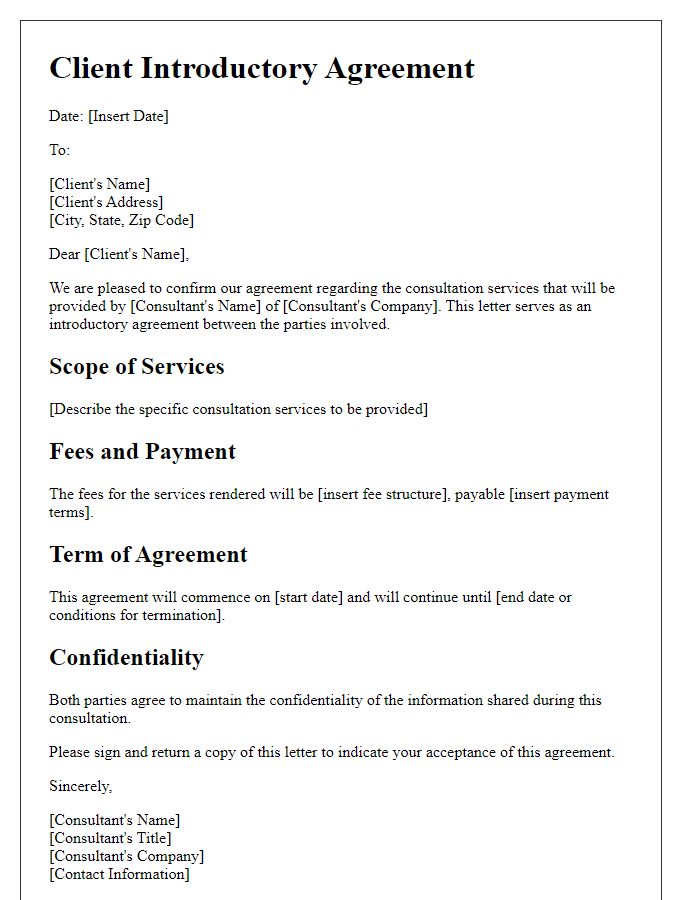


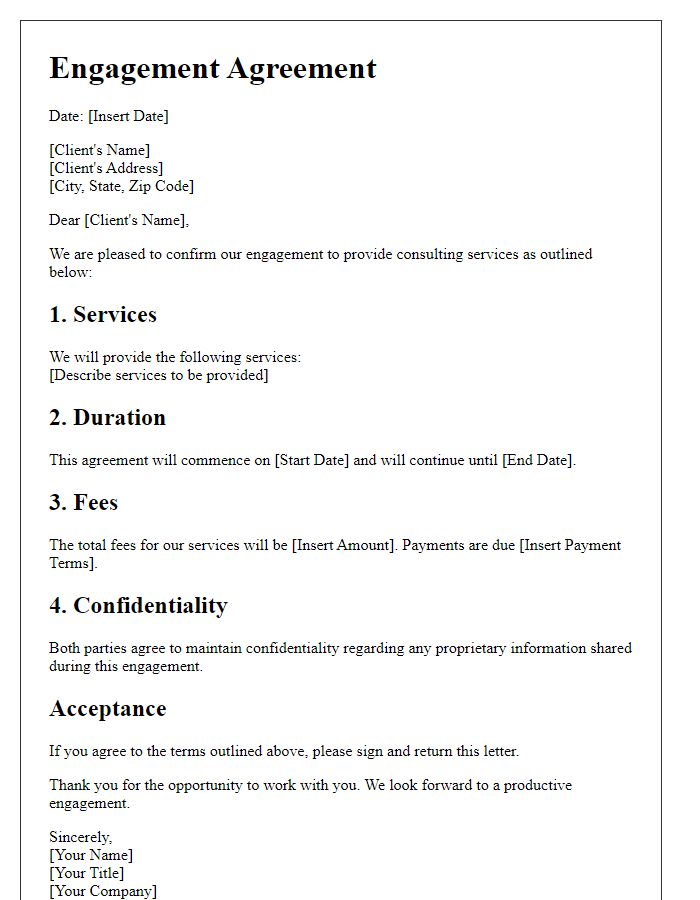
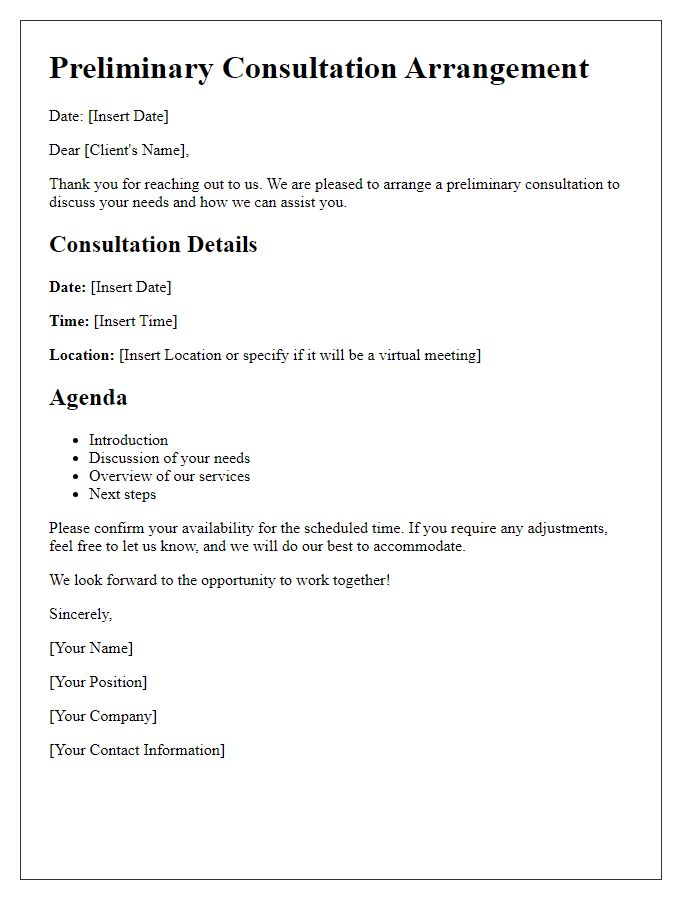
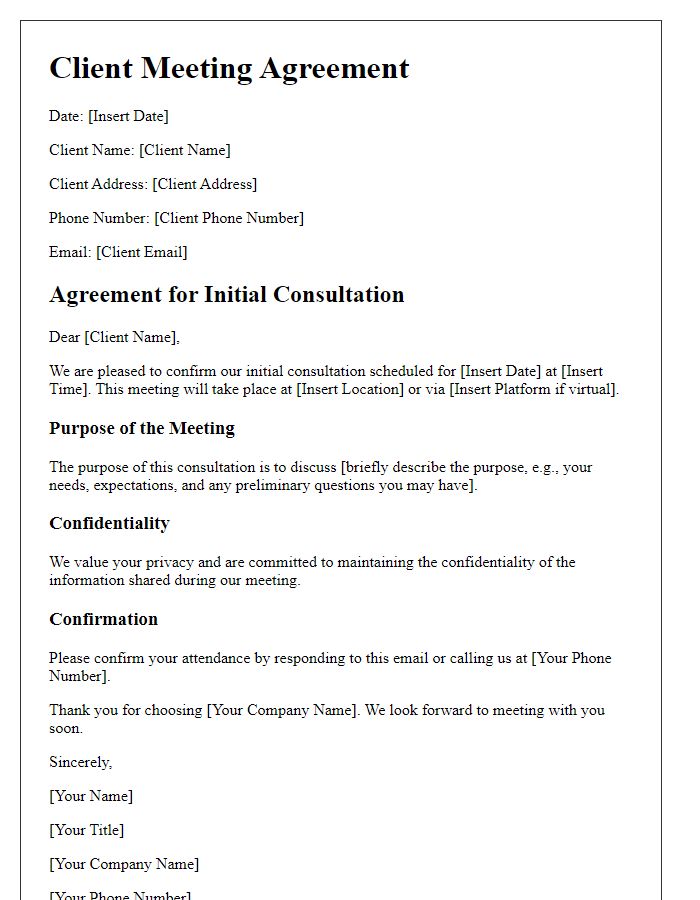
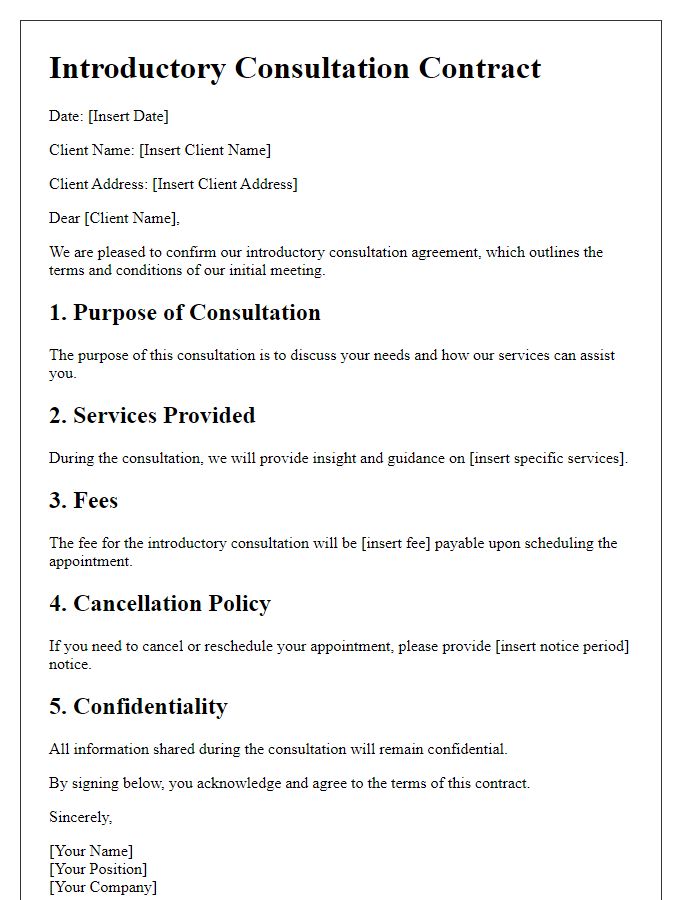
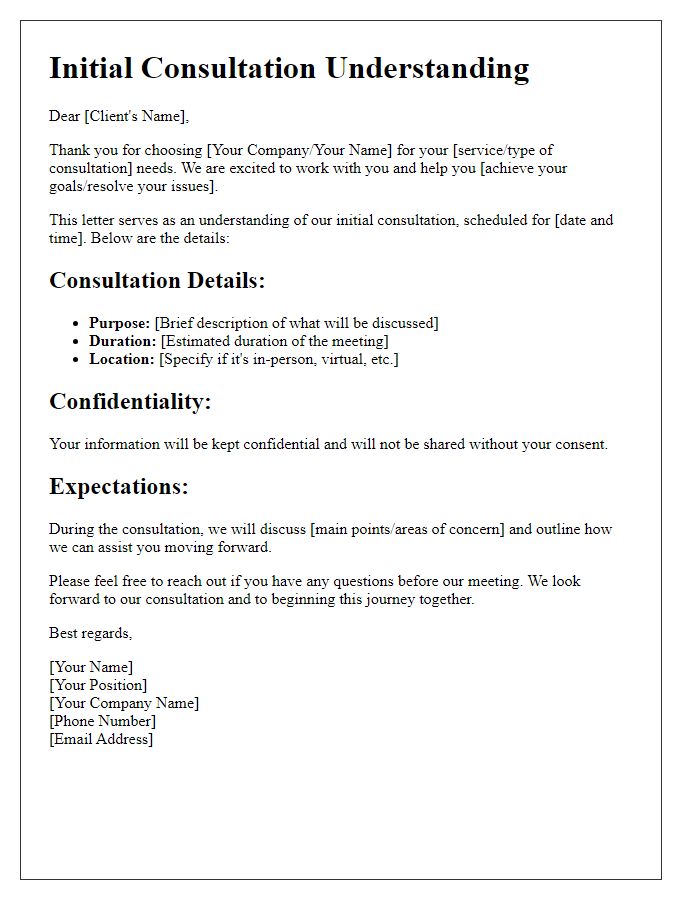
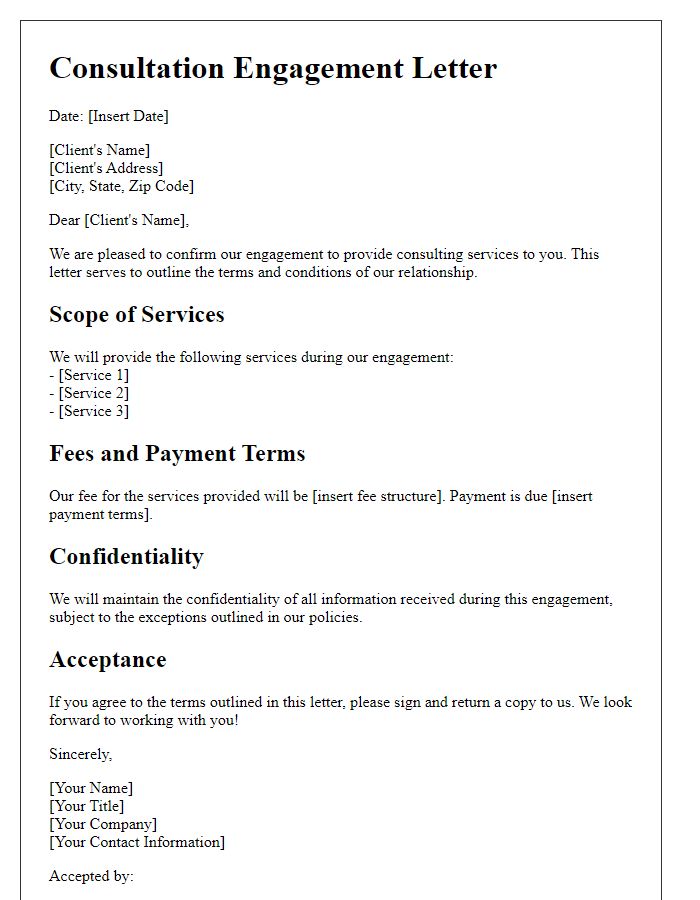
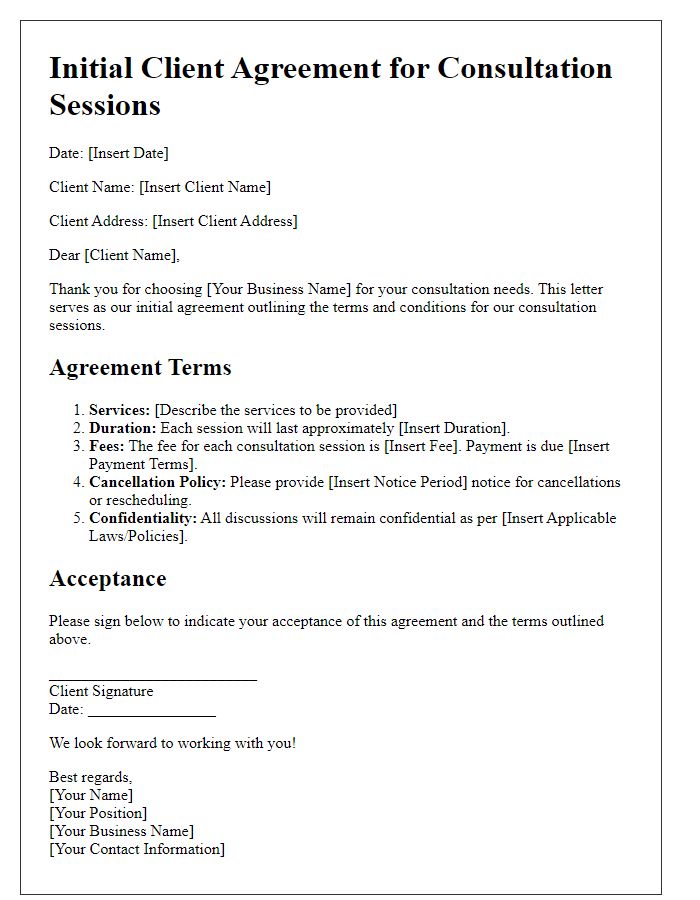


Comments